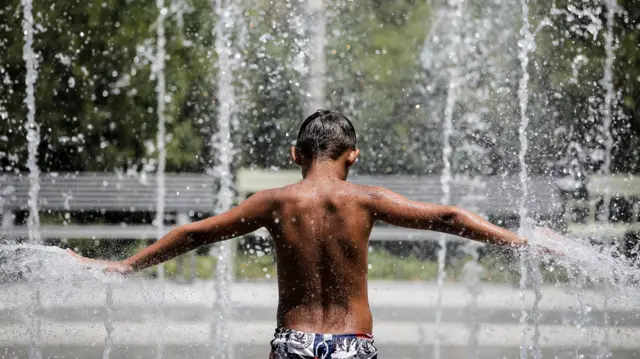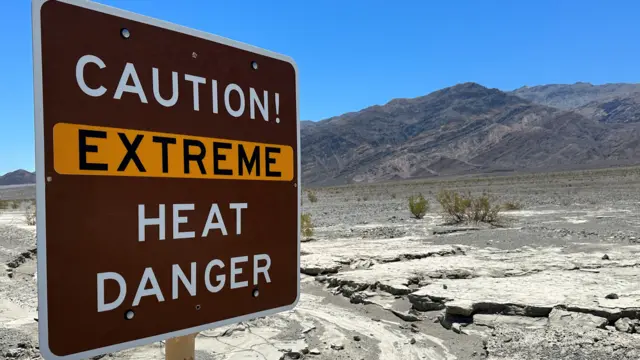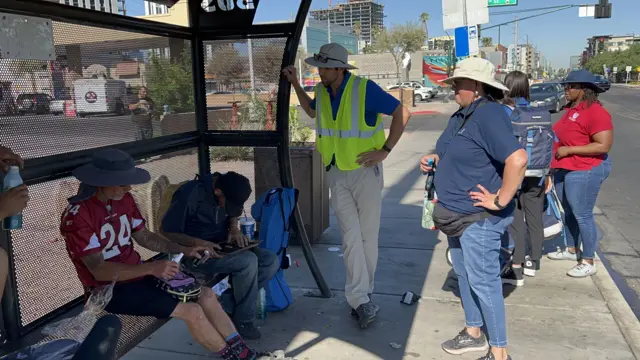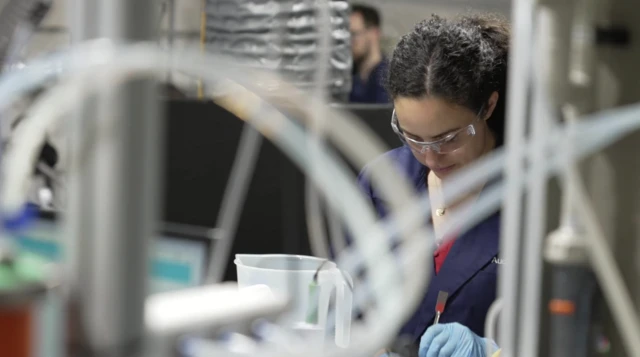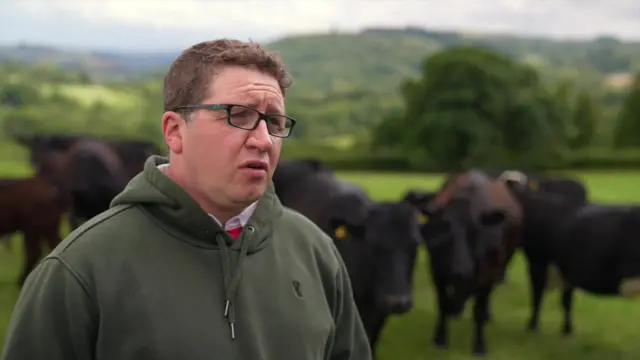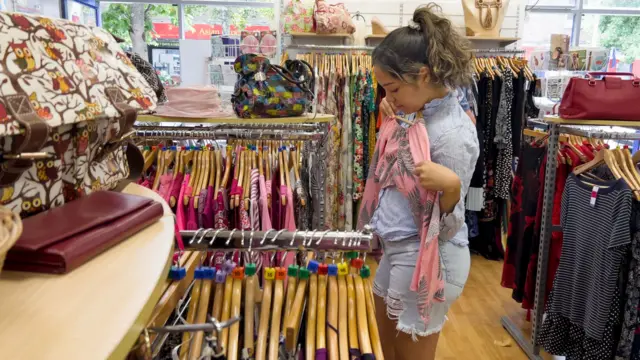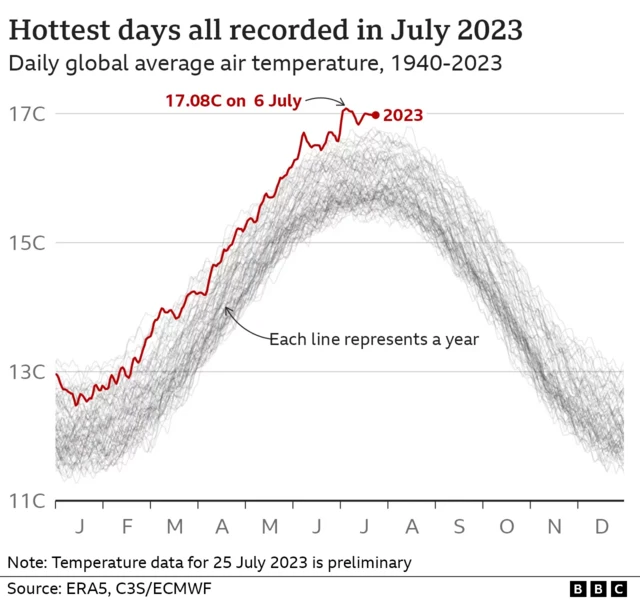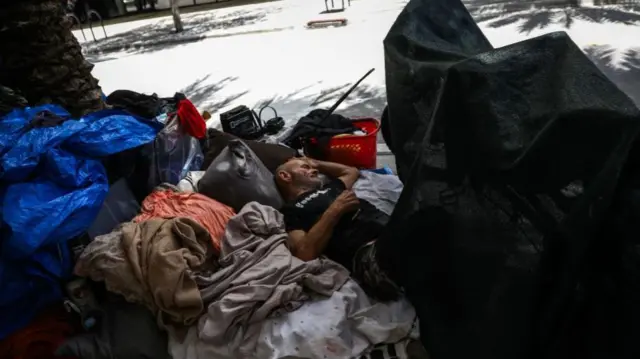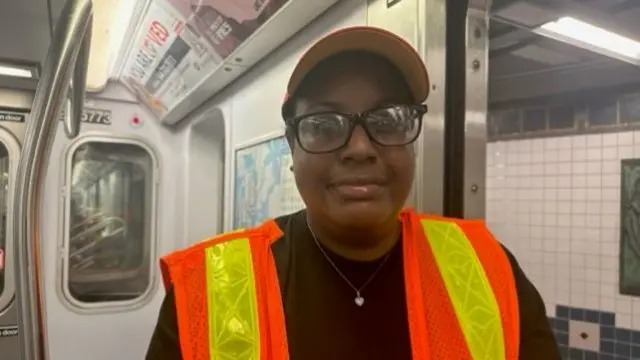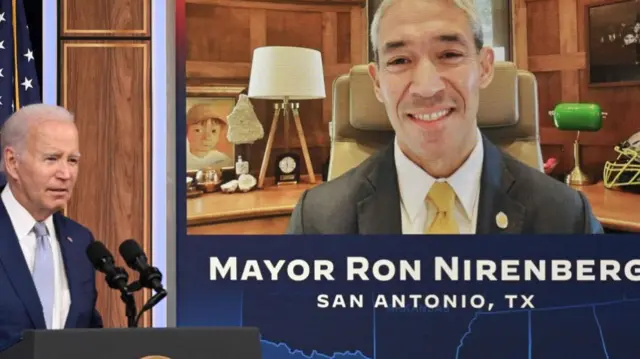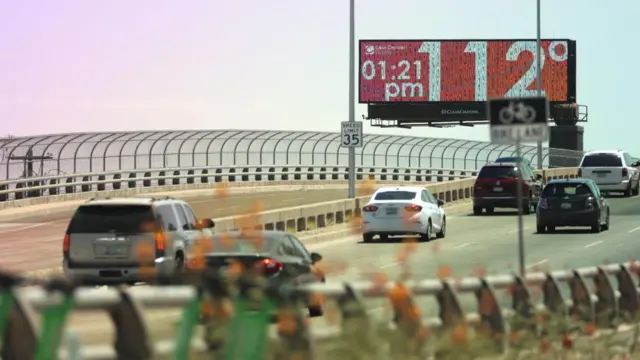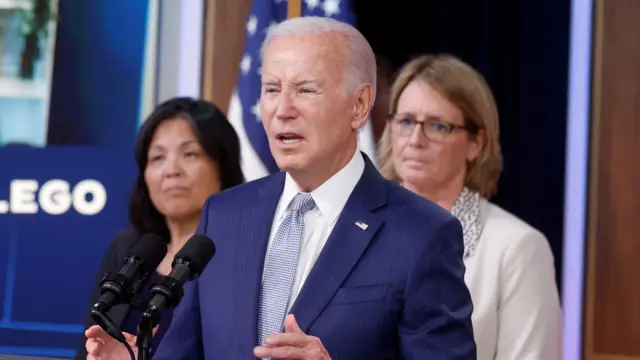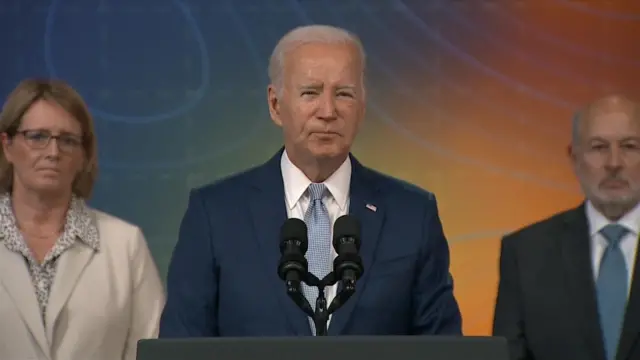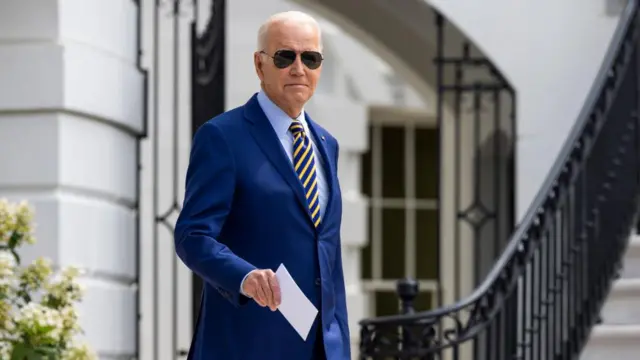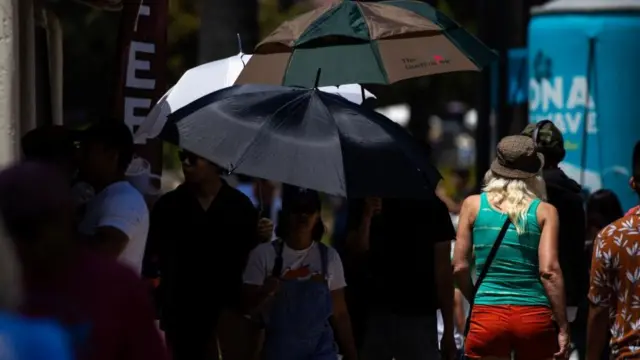Thank you for joining uspublished at 19:11 BST 27 July 2023
We're closing this page now, but there's loads more to read:
- July set to be warmest month on record
- Why this summer has been so hot
- What is climate change? A really simple guide
- How climate change worsens heatwaves, droughts, wildfires and floods
- How do you stop climate change?
- Four things you can do about your carbon footprint
Today's page was brought to you by Heather Sharp, Dulcie Lee, Emma Owen, Marianna Brady, Gabriela Pomoroy, Gem O'Reilly, Jacqueline Howard, Michael Sheils McNamee, Charley Adams, Andre Rhoden-Paul, Malu Cursino, James Harness, and Ali Abbas Ahmadi.
